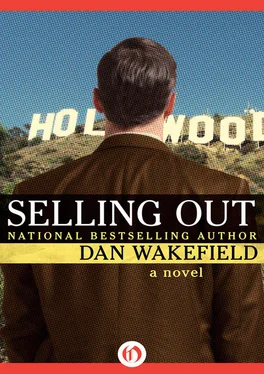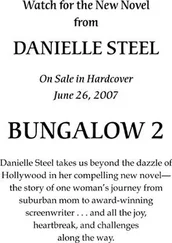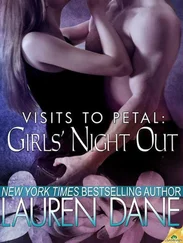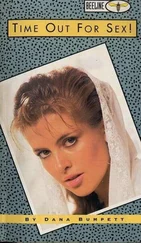“We’ll find her even if we have to make a search of graduate schools all over America.”
Driving back from the studio that evening, Perry imagined a nationwide search to find the right Laurie, the 1980s version of the legendary quest to discover Scarlett O’Hara. Perry, of course, as creator of the character, was asked to lead the talent hunt, conducting interviews in grad schools all over America, where bevies of eager, gorgeous young women finagled their way into his hotel suite in imaginative attempts to seduce him into selecting them for the role.
At a stoplight on Cahuenga Boulevard, Perry was mentally in Madison, Wisconsin, where a voluptuous anthropology major who had just been elected Miss Dairyland tricked her way into his suite by identifying herself as Room Service. After pushing him onto the bed and ravishing him mercilessly, the aspiring star whispered in Perry’s ear: “I’m Laurie,” to which he replied, “I’m sorry, Laurie would never have done it that way.”
Perry laughed at himself, and decided to stop off for something to eat at the Hamburger Hamlet, a mile or so down from the Marmont on Sunset. Usually he hated to dine alone in public, especially after dark, when being by yourself meant you were not only alone but lonely. Out here he didn’t feel that way. Out here he felt that although he might be by himself he was not really alone, for he was part of the mystical fraternity of show business, to which everyone else either belonged or aspired to.
The dream was not impossible. Though the Schwab’s drugstore on Sunset with the counter where Lana Turner was discovered no longer existed, there were real and hopeful actors, actresses, directors and producers, camera people and set designers, in every luncheonette and coffee shop and drugstore in Hollywood, and for the price of that day’s Variety or Hollywood Reporter , you could talk the language of the trades. You could speak of the latest deal and in the next breath talk of your own deal that might be tomorrow’s box office boffo smash and you the producer or writer or star. And like the Megabucks Lottery back in Massachusetts, somebody’s number eventually did come up, and everyone had hopes of hitting the next jackpot.
Perry sat at the counter and ordered the bacon and avocado sandwich on toast (anything with avocado reminded him with a pleasant rush he was out here in exotic Southern California). Though he was by himself, Perry was elated by the knowledge that he was one of the blessed at this or any other counter in Hollywood for he had his own show, not only “in development,” but soon to be “in production.”
Those magical terms, along with other stock phrases of show business, spoken like ritual incantations, were floating now as always in the very atmosphere of the room. A couple of places down from Perry a bald man was telling a tall young woman with an orange streak in her hair that he had just optioned a surefire property he was going to develop for a feature.
An option!
It was one of the magic words, one of the magic deeds. Everyone had options. Anyone could have options. For a dollar, you could take an option on your neighbor’s laundry list, if he didn’t already have it in development for a feature or perhaps for a pilot for a series!
Perry noticed a young woman alone, reading a paperback novel instead of the trades over her custard pie and coffee. Could be she was some kind of misplaced intellectual? She was hardly beautiful, with close-set eyes behind thick glasses, a long, aquiline nose, and stringy hair. Yet there was something appealing about her, a kind of wistful quality, an innocence.… She might be—Laurie!
Perhaps Perry himself was destined to be the one to discover her, the one who happened by chance onto just the right woman when all the pros had failed to produce her. All he had to do was go up and explain who he was, why he was interested in talking with her. It sounded like the oldest cliche in the books—“Excuse me, young lady, but I can get you into show biz!” He felt himself flush red at the awful corniness of it, and yet it was true. It could happen. It wasn’t likely, but it was damn well possible.
Perry began to feel dizzy, almost disoriented. He found it hard to discern what was real and what fantasy. It was a little like being on the edge of the “twilight zone” and not knowing what thought or deed would make you cross over from daily life into some other dimension of experience. He concentrated on his sandwich. That was real. In rising anxiety he gobbled it down, slurped the rest of his coffee, and paid the check.
He hurried to his room and called Jane in Vermont, holding his breath as the rings came, hoping and muttering a prayer she was home. It was not just that he missed her, as he always did the few times they had been apart in the past five years, it was not just his desire for her companionship and lovemaking and talk and intuitive understanding. What he longed for now was her reality , her tangible, solid, commonsensical flesh and blood presence to remind him who and where he was, to keep him from slipping off into the “twilight zone” of show biz fantasy.
The sound of Jane’s voice restored his balance.
“I love you, I miss you too ,” she said.
Perry relaxed, lay down on the bed, stretching and feeling the tension flow from his body.
He dreamed Jane had been lost in a blizzard, and, with the help of Ned Gurney, Kenton Spires, and Alton Saxby, Perry conducted a nationwide search to find someone to play her part in his life. The leading role. But no one was right. They might even nearly look the part, but they kept doing things that Jane wouldn’t do—laughing at the wrong time, speaking ostentatiously, moving awkwardly across a room.
“We still haven’t found her,” Ned Gurney said the next day.
“Don’t worry, we will ,” Kenton said with quiet assurance.
“We’ve just begun to look,” Alton Saxby added.
For a moment, Perry thought they were speaking of Jane, that his dream of the night before was continuing into the day.
But of course they were speaking of Laurie.
Perry took a deep breath and, with a sense of relief and responsibility, exiled himself to his office cubicle to work on the second hour of the script. There were hurrying footsteps in the hall outside his door, and through the thin walls he could hear phones ringing—phones being answered by secretaries saying, “The First Year’s the Hardest!”
Concentrate . He had to remind himself that if he didn’t finish this script for the second hour, the whole thing would come tumbling down around him, the walls collapse, the phones stop ringing. In several hours, he managed to squeeze out a couple of pages of sizzling dialogue and decided to take it down to Ned, rewarding himself with a break.
“Still looking at Lauries,” Kenton reported, and Ned sighed and handed Perry the glossy 8 x 10 photo with credits on the back that announced the next candidate. Perry sat down, deciding he’d indulge in watching just one reading before pressing back to work.
Bad luck. He could tell just by looking at the photo this one was wasting their time. Melinda Margulies may have done Shakespeare in the Park and had a lot of fancy New York stage credits, as well as a good secondary role in a TV miniseries, but she simply wasn’t Laurie.
Laurie was pert, perky, and preppy. The Margulies girl was big at 5 feet 10 inches, 135, not fat but certainly hefty and decidedly broad-shouldered. A female linebacker, at least from her photo.
In person, even more so. She chewed gum with loud smacks, shook hands with a crusner grip, and spoke in a Hat, anonymous tone.
“Ya want me to do it now?” she asked, slumping in her chair before Ned even had time to ask the few polite questions whose purpose primarily was to put the actress at ease.
Читать дальше












